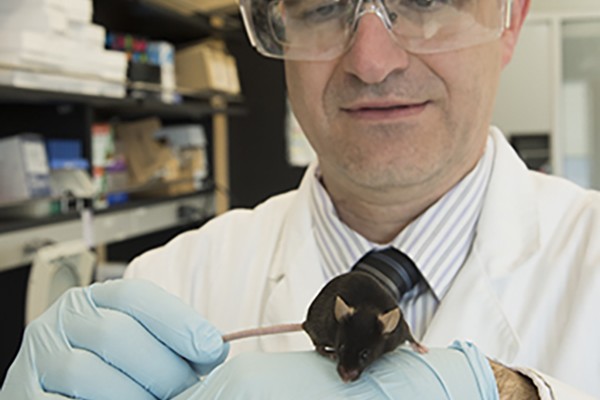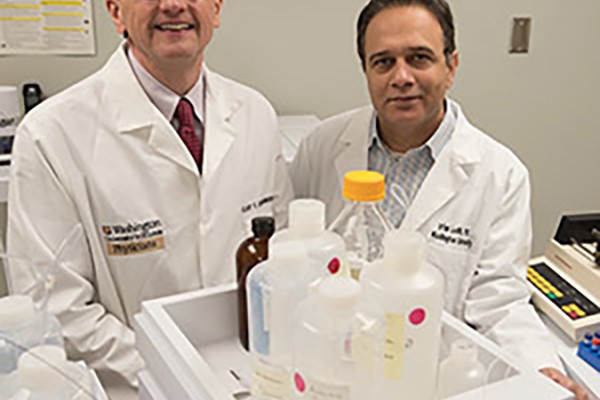Vitamin D prevents diabetes and clogged arteries in mice
A deficiency of vitamin D has been linked to Type 2 diabetes and heart disease, two illnesses that commonly occur together and are the most common cause of illness and death in Western countries. Now, new research in mice led by the School of Medicine’s Carlos Bernal-Mizrachi suggests vitamin D plays a major role in preventing the inflammation that leads to Type 2 diabetes and atherosclerosis.
Viruses may play unexpected role in inflammatorybowel diseases
Inflammatory bowel diseases are associated with a
decrease in the diversity of bacteria in the gut, but a new study led by
researchers at the School of Medicine has linked these same illnesses to an increase in the diversity of viruses.
Targeting fatty acids may be treatment strategy for arthritis, leukemia
Enzymes linked to diabetes and obesity appear to play key roles in arthritis and leukemia, potentially opening up new avenues for treating these diverse diseases, according to researchers Clay Semenkovich, MD, (left) and Irfan Lodhi, PhD, at the School of Medicine.
Not all obese people develop metabolic problems linked to excess weight
New research demonstrates that obesity does not always go hand in hand with metabolic changes in the body that can lead to diabetes, heart disease and stroke. Washington University School of Medicine researchers found that a subset of obese people do not have common metabolic abnormalities associated with obesity, and they don’t develop them when they gain more weight.
Muscle relaxant may be viable treatment for rare form of diabetes
A research team led by Washington University endocrinologist Fumihiko Urano, MD, PhD, (right) and first author Simin Lu, PhD student, (left) has discovered that a commonly prescribed muscle relaxant may be an effective treatment for Wolfram syndrome, a rare but devastating form of diabetes.
Proteins critical to wound healing identified
Mice missing two important proteins of the vascular system develop normally and appear healthy in adulthood, as long as they are not injured in some way. If they are, their wounds don’t heal properly, a new study shows. The research has possible implications for treating diseases involving abnormal blood vessel growth, including in the skin and eye.
Study: Can vitamin D slow heart complications from diabetes?
Washington University researchers are studying African Americans with diabetes to learn whether vitamin D can slow the development of cardiovascular problems. Shown is principal investigator Carlos Bernal-Mizrachi, MD, with study patient Helen Randall.
Study compares long-term effectiveness of diabetes drugs
Researchers at the School of Medicine are comparing the long-term benefits and risks of four widely used diabetes drugs given in combination with metformin, the most commonly prescribed medication for treating type 2 diabetes. The principal investigator at the St. Louis clinical site is Janet B. McGill, MD, who is pictured discussing options with study patient Michael Gingrich.
Smoking may dull obese women’s ability to taste fat and sugar
People who smoke also tend to eat more high-fat foods. So do obese people. Now, a team of researchers, including M. Yanina Pepino, PhD, at the School of Medicine, has found that obese women who also smoke have a difficult time perceiving fat and sweetness in their food. And that could lead them to eat even more fatty foods.
Obituary: David M. Kipnis, MD, Distinguished University Professor Emeritus of Medicine, 86
David M. Kipnis, MD, Distinguished University Professor Emeritus of Medicine at Washington University School of Medicine in St. Louis, died at his home Wednesday, Feb. 5, 2014, after a long illness. He was 86.
View More Stories



